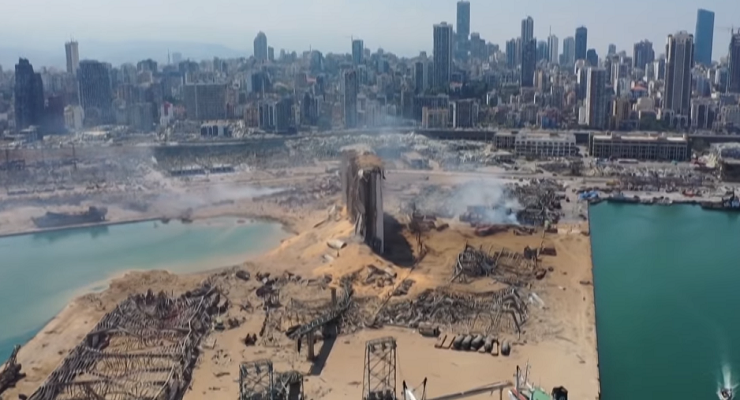
This perspective is from Democracy Digest:
This week’s massive explosion destroyed half of Lebanon’s capital, but it also drew more attention to the country’s deeply corrupt and crumbling political system, which the Lebanese people have been calling to reform since October, The Washington Institute reports. That is why Macron spoke of “a new political pact” for Lebanon when he visited the disaster zone; likewise, the people are calling for an international investigation and accountability in addition to humanitarian assistance. What does all this mean for Lebanon, and what implications does it hold for U.S. policy? (see below)
There was a time when fears of a violent sectarian power struggle seemed like a good reason to move slowly in unpicking Lebanon’s power-sharing system until this week’s explosion, The Economist contends:
But those in power are using the crisis to hook more of their followers on the handouts they provide. And the cost of moving slowly is increasingly clear. It was not fighting or foreign occupation that led to the destruction of a large part of Beirut. It was incompetence by a corrupt and broken state. Only bold action will fix it. The government should do away with the power-sharing system sooner rather than later, and replace it with something more democratic and meritocratic. RTWT
Read the full perspective here.
Leave a Reply